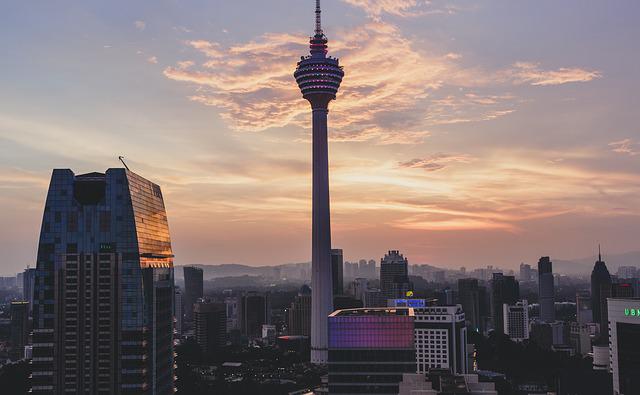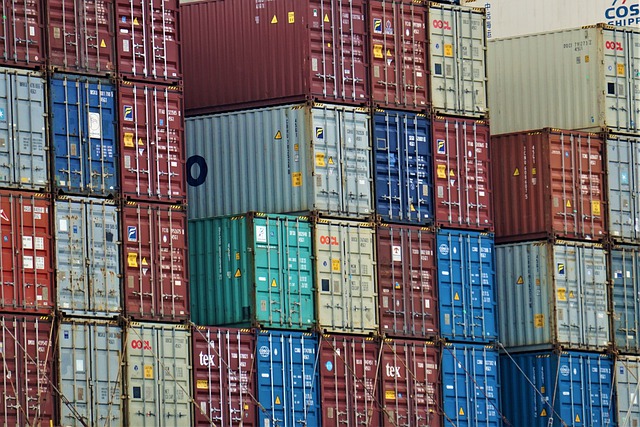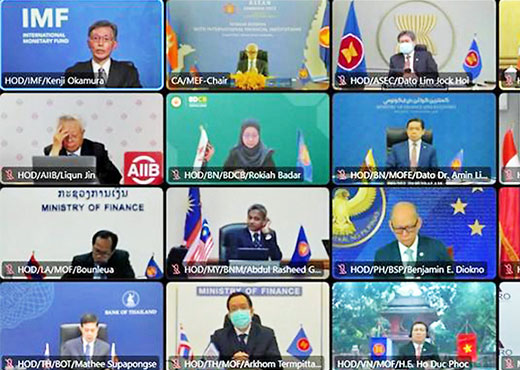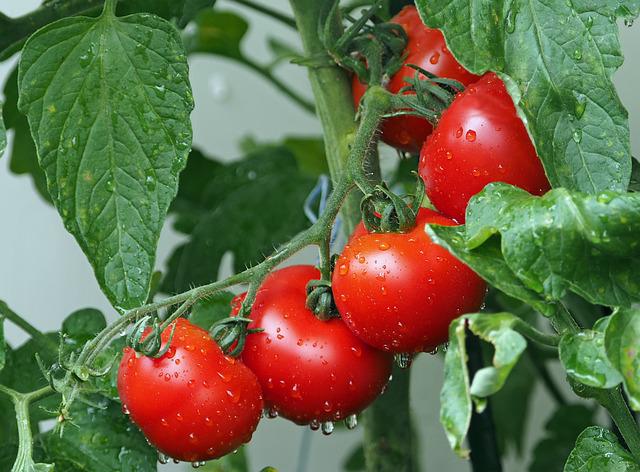ASEAN finance ministers and central bank governors exchanged views with the International Monetary Fund (IMF); the World Bank (WB); the Asian Infrastructure Investment Bank (AIIB); the Asian Development Bank (ADB); and the ASEAN+3 Macroeconomic Research Office (AMRO) on regional and global outlook, in particular risks and opportunities, as well as policy recommendations, to foster a resilient, sustainable and inclusive recovery.
In his intervention, Dato Seri Setia Dr Awang Haji Mohd Amin Liew emphasised the need for ASEAN to continue with collective efforts to ensure ASEAN remains an attractive investment destination.
The minister also said it is important for the people of ASEAN to be equipped with the right mentality and skills to take advantage of opportunities arising from the new “norm,” which can further strengthen recovery.
The meeting concluded that as the pandemic recedes most economies are ready to re-open. However, the focus to alleviate the impact of the pandemic and support economic recovery remains crucial.
As uncertainty and volatility of the global environment increase, policy mix needs to remain supportive and ASEAN members are encouraged to continue to undertake reforms that will spur recovery.
Read the full article here.
Structural reform efforts need to be continued to diversify Brunei Darussalam’s economy to improve its economic growth prospects. Without economic diversification, a broad-based global recession that leads to a decline in world demand and oil prices will affect Brunei’s economic growth, fiscal balance, and external sector.
This was highlighted by ASEAN+3 Macroeconomic Research Office (AMRO) in its annual ASEAN+3 Regional Economic Outlook (AREO) report on the Sultanate published this week.
The report added that climate change, particularly the low-carbon transition, is also a key perennial risk impacting the country’s economic sustainability.
In the short term, major risks facing Brunei’s economy continue to revolve around its concentration in the oil and gas sector and the COVID-19 pandemic.
The country’s high dependence on the oil and gas sector makes it less resilient to domestic and external shocks which adversely impact its external position and fiscal balance.
The report noted that the plunge in global demand for oil and gas in 2020 affected the economy significantly, in addition to the second wave of COVID-19 infections due to the Delta variant and the COVID-related border restrictions adversely affecting the country’s short-term performance.
Despite the easing of containment policies in late 2021 as the second wave of infections subsided, any new and sustained wave of the Omicron variant could threaten the near-term outlook, especially considering the slow progress in economic diversification.
Read the full article here.
Brunei Darussalam’s economic growth is forecast to pick up this year at 4.1 per cent benefitting from high oil and gas prices, ongoing global recovery and low-base effect. Next year, the gross domestic product (GDP) growth is projected to be 2.3 per cent.
This was highlighted by ASEAN+3 Macroeconomic Research Office (AMRO) in its annual ASEAN+3 Regional Economic Outlook (AREO) report on Tuesday.
The report said the Sultanate’s economy declined for four consecutive quarters year-on-year (y-o-y) through third quarter (Q3) of 2021. Real GDP declined by 1.7 per cent y-o-y in the first nine months of 2021, driven mainly by contraction in the oil and gas sector.
Turnaround activities and a limited onsite workforce because of COVID-19 reduced the sector’s ability to recover from unscheduled deferment of well, reservoir and facilities management activities.
The non-oil and gas sector registered positive growth in Q3 2021, thanks to subsectors such as finance, communication, health services and manufacturing of food and beverages.
Growth in the non-oil and gas sector was mainly driven by increased domestic demand.
The AMRO report added that retail sales performed well in the first nine months of 2021 as restrictions on overseas travel prompted a rise in domestic consumption. However, it dropped by 5.2 per cent in Q3 2021 as movement restriction mandates took effect.
Read the full article here.
Lao PDR Reforms Boosted Business Development, but More Needs to be Done — New Report
MANILA, PHILIPPINES (31 March 2022) — The regulatory environment for business development has improved across all provinces in the Lao People’s Democratic Republic (Lao PDR),
but more needs to be done to accelerate the country’s economic recovery from the coronavirus disease (COVID-19) pandemic, according to a joint report by the Asian Development Bank (ADB) and the Lao National Chamber of Commerce and Industry (LNCCI).
The second edition of the Provincial Facilitation for Investment and Trade (ProFIT) Index report recommends that the government take steps to reduce regulatory requirements to encourage companies to register formally, improve transparency, and remove informal charges levied on enterprises. The index analyzes the experiences and perceptions of the business community in complying with regulations at the local government level, based on a 2019 survey of 1,357 enterprises in 17 provinces.
“Reforms since 2018 have helped local governments remove hurdles to business development and encourage economic diversification,” said ADB Country Director for the Lao PDR Sonomi Tanaka. “Further reforms, implemented with efficiency and integrity, are needed to spur new business opportunities and create jobs to help the Lao PDR build a more competitive, productive economy after the COVID-19 crisis.”
The joint report focuses on six key areas: the ease of starting a business, transparency and access to information, regulatory burden, informal charges, consistency in policy implementation, and the business friendliness of the provincial administration.
“Overcoming the unprecedented challenges posed by the pandemic will require the central and local governments to work closely with the private sector to attract new domestic and international investments,” said LNCCI President Oudet Souvannavong. “The ProFIT report offers detailed analysis on the strengths and weaknesses of the business environment procedures and practices at the local government level.”
The Lao PDR’s economy and business community were hit hard by the COVID-19 pandemic. The country’s economic growth is expected to be below 4.5% in 2022 and 2023, compared with an annual average expansion of 7% in the 2 decades prior, says the report.
The government’s 2018 reforms reduced the cost and the processing time of business registration by one-third, the report says. But the survey found a high prevalence of irregular practices, including informal payments to officials, underreporting of enterprise income, and difficulty in accessing official information. The cumbersome and complex regulatory framework means the government is missing out on substantial tax revenue collections needed to fund spending on critical public services. The government has acknowledged the importance of making business registration and tax payments easier in its Ninth National Socio-Economic Development Plan, 2021–2025.
A second ADB–LNCCI report, also released today, finds that women-led enterprises have lower levels of compliance and tend to be smaller in size than men-led businesses. Female entrepreneurs reported that their business registration takes longer and costs more. The report urges the government to train staff to overcome hidden gender biases and make it easier for women to create and run businesses.
ADB is committed to achieving a prosperous, inclusive, resilient, and sustainable Asia and the Pacific, while sustaining its efforts to eradicate extreme poverty. Established in 1966, it is owned by 68 members—49 from the region.
The government should come up with not only short-term measures, but also medium and long-term plans to cope with the impact of the global oil price surge and the Russia-Ukraine war, according to industrialists in various sectors.
They propose the administration also focus on creating more jobs, redesigning national energy management, and making the business sector more self-reliant as ways to support the overall economy and help people survive the impact of economic uncertainties over the long haul.
BEYOND SHORT-TERM RELIEF
The cabinet recently approved a list of 10 measures to counterbalance the fuel price spike. The measures are expected to last from May until July.
Though it agrees with the measures, the Federation of Thai Industries (FTI) wants the government to start thinking about efforts that will enable businesses to be more self-reliant once the package of measures aimed at easing the cost of living expires.
The measures help households and businesses, especially those in the retail and transport sectors, but they are insufficient because the country needs medium and long-term plans to cope with the impact of the global oil price surge and the Russia-Ukraine war, said the federation.
These two problems have dealt a blow to the Thai economy, which is still staggering from the economic effects of the pandemic.
While an urgent economic cure is required for Thailand, it is more important that additional actions be taken to fully restore the economy, especially in terms of helping pandemic-ravaged tourism operators and small and medium-sized enterprises (SMEs), said Supant Mongkolsuthree, chairman of the FTI.
The business sector should eventually become more self-reliant, depending less on the state's fiscal-monetary injections, he said.
"Don't forget that if a huge amount of budget is spent to solve certain problems, authorities can hardly avoid causing a burden on the country's coffers," said Mr Supant.
This may result in a lack of opportunity in dealing with other problems, he said.
Mr Supant suggested the government help SMEs better cope with their debts so they can manage their money and keep operating their businesses over the long term.
The government should use the energy price crisis as an opportunity to redesign national energy management by using more renewable energy and reducing dependence on fossil fuels, he said.
In the tourism sector, authorities should seriously consider abandoning the mandatory Test & Go scheme, a Covid-19 screening measure that requires foreign travelers to undergo RT-PCR tests in Thailand, said Mr Supant.
This measure runs counter to the message of truly reopening Thailand to tourists, he said.
Foreign visitors who are fully vaccinated want unfettered travel that will not incur additional costs, said Mr Supant.
Source : Bangkok Post
Thailand’s Finance Minister Arkhom Termpittayapaisith has revoked the business licenses of two financially-troubled Thai insurance companies, Southeast Insurance and Thai Insurance, effective today (Friday), following a massive amount of COVID-19 claims.
Secretary-General of the Office of the Insurance Commission (OIC) Suttipol Taweechaikarn said that the finance minister had no choice but to close the businesses, because their shareholders have refused to increase the capital.
He said that the two insurance companies now have more liabilities than assets, due to claims for compensation from many customers who took out the two firms’ “Found, Paid, Done” COVID-19 insurance policies.
The compensation claims mounted as COVID-19 spread, to the extent that their liabilities have outstripped their assets
The OIC secretary-general said that the insurance reserves and capital funding ratio of the two firms are below what is required by law, the companies have unreasonably delayed compensation payments to their customers and they have failed to record compensation payments as required, forcing the OIC to propose the revocation of their licenses.
In January, Thai Group Holdings, the parent company of Southeast Insurance, notified the Stock Exchange of Thailand of its board’s decision to wind the insurance company up and to return its operating license to the insurance registrar. The move was, however, rejected by the OIC on the grounds that it cannot simply shut down the business unilaterally without approval from the OIC.
Suttipol said that the OIC has been trying hard to solve the financial problems of the two companies for the benefit of their customers, but without success. He admitted that the revocation of the licenses will affect only the COVID-19 policy holders, whereas other life and non-life insurance policies have been transferred to other providers. Southeast Insurance still owes 13 billion baht in compensation, whereas Thai Insurance owes 4.6 billion baht.
source : Thai PBS WORLD
Ending weeks of speculation, the Bank of Thailand (BOT) and the Securities and Exchange Commission (SEC) on March 24 put in place new regulations governing the digital assets business, effectively curbing their ambitious outreach.
The authorities made it clear that the move was aimed at protecting investors and guarding against financial stability.
The crux of the measure was prohibiting the use of digital assets, such as cryptocurrency and tokens, as a means of payment. Those involved in the digital asset business, whether they are digital exchanges, brokers, dealers, investment advisers, ICO portals or fund managers are barred from creating infrastructure that could facilitate the use of cryptocurrency as a means of payment for goods and services.
They are prohibited from arranging e-wallets that could serve as a payment tool. The law goes into effect from April 1. Players in the field are barred from advertising about services of digital assets to pay for goods and services. The central bank has also imposed a limit on banks’ investment in digital assets; investment by a bank cannot exceed 3 percent of its capital.
The additional rules come as regulators are increasingly concerned about the rising investment in digital assets considered to be unsound or even harmful to retail young investors who do not understand the associated risks.
“Enthusiasm for digital assets in Thai society is high, actually we could say that it is very high,” said Roong Malikamas, BOT’s assistant governor.
She referred to the spike in investors opening accounts to trade in digital assets. From 2020 to 2021, the number of trading accounts went up more than three times, from 700,000 to 2.27 million. The number of cryptocurrency holders in Thailand tops the world list.
The ratio of cryptocurrency holders to internet users is as high as 20.1 percent, double the world average of 10.2 percent. The number of businesses engaging in this new industry is also rising. Thailand has eight digital asset exchanges and seven ICO Portals. In addition, more and more commercial banks and other types of financial institutions have expressed their intention to invest in digital assets, Roong noted.
Sourse : Thai PBS WORLD
























